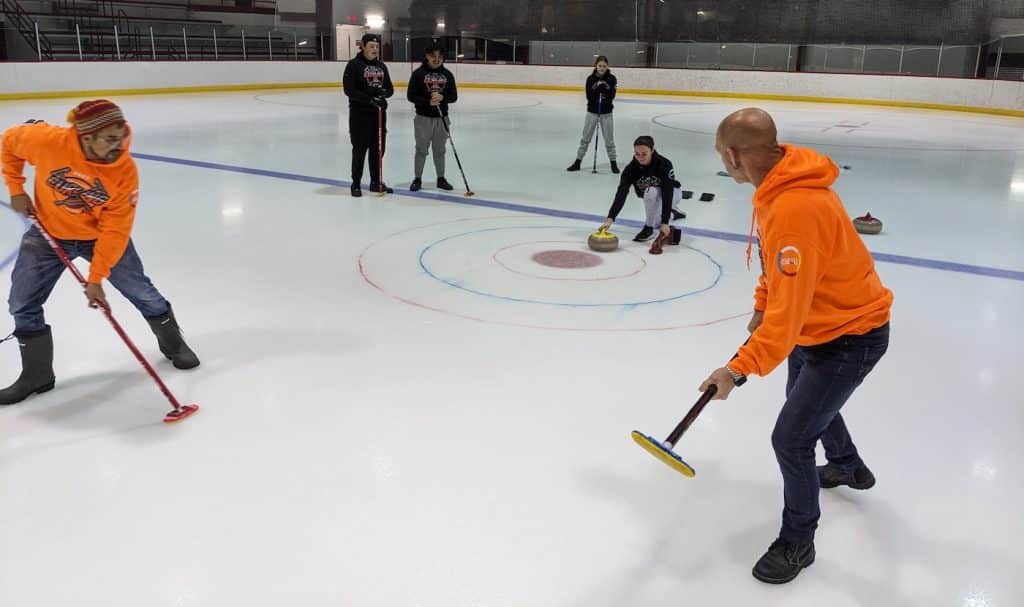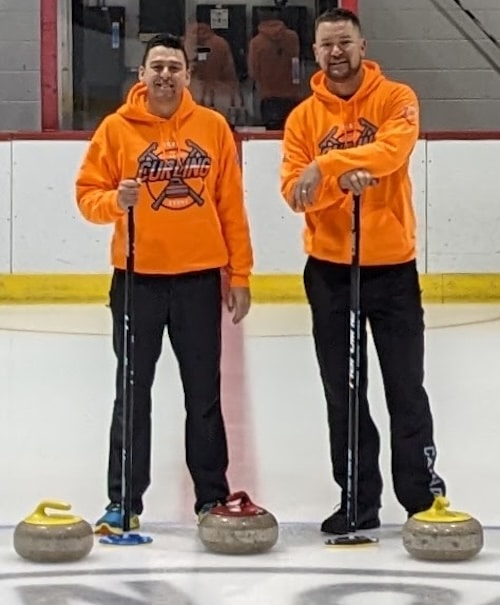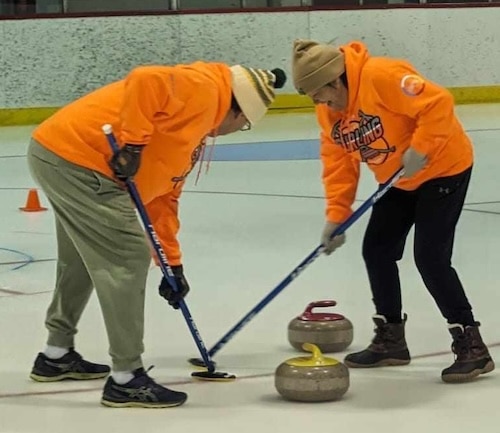Northern exposure!

Colin Hodgson helps introduce curling to northern Quebec indigenous community
Earlier this month, a set of curling stones made a 1,500-kilometre journey from Montreal to Chisasibi, an indigenous community in Northern Quebec. For the first time, the remote town on the coast of James Bay would experience curling, with help from a famous teacher.
Six-time Brier participant Colin Hodgson, through his work with a program called Classroom Champions, spearheaded the event, with help from local organizer Trevor Monaghan.
“They gave me an opportunity to work with a Cree Nation community centre and bring curling to this community,” said Hodgson (Red River, Ont.), whose ancestors were Metis. “As an indigenous athlete, it was a really amazing opportunity to help create a truly unique event.”

With funding from Heritage Canada, and some rocks and gear on loan from Curling Quebec, Hodgson enlisted the help of Toronto’s Brian Chick, a former Team Leader for Canadian entries at multiple world curling events. The pair flew in to Chisasibi, along with Andrea Dion, a First-Nations facilitator from Classroom Champions, and proceeded to create two sheets of curling on the town’s hockey rink.
“It wasn’t an easy task,” said Hodgson of pulling it all together. “We only had a few weeks to get the program together, but thankfully Alanna Routledge at Curling Quebec was willing to help, and made sure we had everything we needed.”
“It was a great opportunity for us to showcase a new sport, and to build some interest moving forward,” added Monaghan, director of recreation programs for the Cree Nation of Chisasibi. “Having Colin and Brian here to introduce us to the sport was fantastic.”
Hodgson and Chick worked with the local arena operators to insert hacks, draw houses (using Sharpie markers and bingo dabbers), and before long had two playable sheets for curling – albeit a bit shorter than regulation length.
“It ended up being a beautiful surface. The rocks slid really well, with a bit of curl,” said Hodgson. “It was certainly good enough to teach new curlers, and eventually get them playing games.”
Nearly 40 people came out to the Learn-to-Curl sessions and came back for games the following day. Monaghan had created custom hoodies for all participants and provided breakfast and snacks as well. Participants ranged in age from six to 70 years old.
“It was really special to see people get so into an activity they’d never done before. I’ve never seen anything like it,” said Hodgson. “The Cree Nation people are incredible athletes and they picked it up really fast. Some of them looked like they’d been playing for years. They were playing games, and were really competitive. It was awesome.”
“We got coached, we learned to play, we had fun,” said Monaghan. “The best part was that people of all ages could participate, and that whole families could do it together. One of my friends was pleasantly surprised when he realized it was something he could do with his wife.”
Even before the weekend was over, plans were being made to bring curling to Chisasibi again, perhaps in a more permanent capacity. Town officials have been working to design a new community recreation facility, as the town has outgrown the existing buildings. Now they want to include a curling rink in the new plans.
“We’ve got funding for a new athletic and cultural centre, and it seems like curling is a great option for a social and leisure pursuit,” said Monaghan. “There could be a competitive aspect that builds from that afterward.”

“This community really wants to create their own champions in sport, and for them to succeed at a national level across the country,” said Hodgson. “I could see it happen too . . . the ability and competitiveness of the group was obvious. With a good facility, and the right coaching, it could certainly happen.”
Aside from the curling, the out-of-towners were introduced to town officials and elders, treated to meals with locals and their families, and made a visit to the local Cultural and Heritage Museum. The area had two residential schools that operated into the 1970s, and much of the trauma of that era is still obvious. There was a reunion of residential school survivors at the community centre next to the arena, while the curling was going on.
“It was a very emotional experience, but also a very encouraging experience,” said Hodgson. “We are working on reconciliation and working on moving forward together. It’s hard not to be motivated and hopeful when you spend time with the amazing people in this community.”




